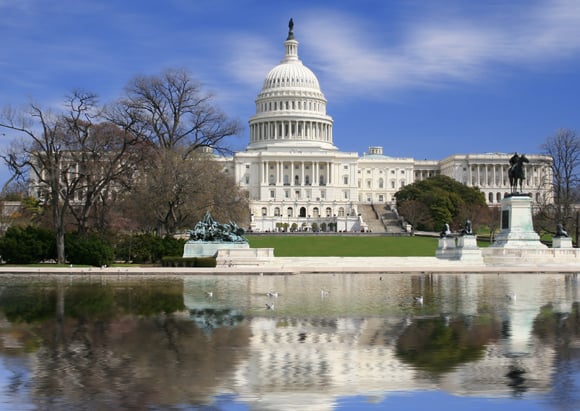House and Senate negotiators agreed to include the stronger House provision on fiduciary duty in the sweeping financial regulatory reform bill that they're completing today.
Lawmakers unanimously approved language that empowers the Securities and Exchange Commission to write a regulation requiring broker-dealers to act in the best interests of their clients and to reveal any conflicts of interest when providing investment advice to retail clients. [To see the updated section governing standards of care for advisers,
Click here ]
Fiduciary advocates declared victory, citing the efforts of Rep. Barney Frank, D-Mass., who is the chairman of the House Financial Services Committee as well as the House-Senate conference.
"Chairman Frank and House conferees really came through for investors," said Barbara Roper, director of investor protection for the Consumer Federation of America. The final language "allows the SEC to adopt rules that impose the full Advisers Act fiduciary duty on brokers, and it doesn't put any unreasonable barriers in the way of the SEC to prevent it from doing so."
The standard of care is the same one that investment advisers must adhere to. Under the final provision, the SEC will conduct a six-month study analyzing the differences between the fiduciary duty and the suitability standard under which broker-dealers currently operate. Suitability requires that a product be appropriate for a client's investment needs and timeline.
The SEC must incorporate the results of the study in any fiduciary regulation that it promulgates. Under the provision, the commission would be empowered to require broker-dealers to act in the “best interests” of clients. That authority was lacking in the original Senate version of the bill.
Opponents of the fiduciary duty backed the SEC review because they said that unintended consequences of putting broker-dealers under the same standard as investment advisers might undermine the broker-dealer business model and raise their costs.
(Click here for info from our Washington insiders.)
David Tittsworth, executive director of the Investment Adviser Association, said that the final agreement was truly a melding of the House and Senate versions of fiduciary duty.
"Compared to some of the things that were floating around in the last 48 hours, this is a pretty reasonable compromise," Mr. Tittsworth said.
The final agreement maintains House language that says that charging a commission or offering a proprietary or limited menu of products is not necessarily a fiduciary violation. Broker-dealers will not be held to a continuing care of duty after they have provided investment advice.
In addition, the agreement harmonizes the enforcement of the standards of conduct outlined in securities legislation of 1934 and 1940.
Although the National Association of Insurance and Financial Advisors applauded the inclusion of the SEC study, it is wary of the fiduciary rule that the agency may eventually promulgate.
“We are disappointed with the decision to allow the SEC to put in place a ‘best interests' standard that will not tie directly to findings from the study,” NAIFA President Thomas Currey said in a statement.
“However, we support the House efforts to ensure that the “best interests” standard recognizes that no broker-dealer and their registered representatives can violate the standard simply because they receive commissions and sell proprietary products.”
The House and Senate settled on an approach to fiduciary duty that answers many of the concerns that fiduciary advocates had with a compromise offered by Sen. Tim Johnson, D-S.D., on June 22.
Mr. Johnson's idea would have required that the SEC study show definitively that regulatory gaps between advisers and broker-dealers could not be addressed through any other regulatory means other than a universal fiduciary standard.
Fiduciary advocates said that the language would have prevented the SEC from promulgating a rule without being hauled into court in lawsuits.
The House conferees stopped Mr. Johnson's proposal and replaced the weaker original Senate fiduciary language.
Establishing a universal fiduciary standard “is an important issue to us,” said Mr. Frank. “Our view is that [SEC Commissioner] Mary Schapiro is ready to go forward on it.”
Capitol Hill negotiators hope to wrap up the conference by tonight so that they can send a final bill to the House and Senate for approval next week and to President Barack Obama to sign into law by July 4.







